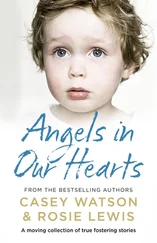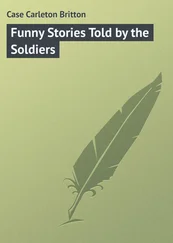“I want to steal your body,” he’d said to Lucy, running his hand territorally over her hip.
“Why would you want to do that when I’ll give it to you for free,” she said, taking his hand and placing it between her legs. It amazed her how easily she spoke these words. She almost laughed out loud but instead channeled this energy into a seductive smile. She was a much better actor than he was. But what had he taken from her? What had they taken from each other — tasting each other, little bites on the verge of cannibalism. They probably still had traces of each other under their nails, in their throats, in their genitals. They had each stolen something. Lucy hoped that he noticed something gone from him too.
Back in the office Lucy doodled on her desk calendar — little faces with enormous eyes and wild hair. She’d thrown things at him in hotel rooms when they argued — shoes, TV remotes, maps — so that later he would remember her as the kind of girl who threw things during arguments, the “wild” girl in his past that his future girlfriends, the legitimate ones, would hate to hear about.
She put an amputated rubber hand that wiggled its fingers in one of the file drawers for Mildred to discover later. She’d found it half price in a magician’s shop in Chinatown. Lucy imagined her screaming, “It’s those pranksters from the morgue!” Mildred would send the crisp papers of the dead flying everywhere with her flailing arms.
She put her head down on her desk and forced herself to imagine the death of the cross-country lover. It wasn’t hard. She’d had a lot of practice. She’d started rehearsing for his death as they drove across the country, her head propped against the rattle of the van window. She imagined a car accident in which his limbs were flung like tree branches, his head like a bowling ball through the windshield. She conjured farm machinery gone wild, threshing him like a sheaf of wheat. Now she allowed herself to imagine him smothered to death in a collapsed snow cave, his dog sled, pulled by dogs who never liked him, fleeing across the tundra without him. When the phone rang, Lucy lifted her head from the desk and wiped the drool from the corner of her mouth.
I’m very sorry for your loss,” Lucy said.
“I’m calling about my wife,” said the man. There was a pause, and then he added, “She’s dead.”
“What is your wife’s name, sir?” Instead of rolling herself over in the chair as she usually did, she got up and walked to the potential donor files.
“Her name is Dora. Dora Moore.”
Lucy felt so tired. Last night she’d dreamed of endless pastures and vast oceans, landscapes in which she looked for the cross-country lover, but even in her dreams she knew it wasn’t him that she was looking for. She searched with the tantalizing taste of salt and earth on her tongue.
“I’m so sorry, Mr. Moore,” Lucy said, but she meant “Rescue me.”
“She’s still wearing the chapstick that I applied before she died, minutes before. She kept saying, ‘Lips,’ and for the longest time I didn’t know what she meant, but then I understood. She even moved her mouth to accommodate the motion while I put it on.”
Lucy put her hand on her knee to stop the bouncing, but it was not her knee that bounced. The medical center itself rolled with the rhythm of a loping horse.
“It’s an earthquake,” Mr. Moore said. “Maybe this house will crumble into dust.”
Lucy felt a watery dizziness, and for a second she thought she might be dying, really dying, too.
“I’m sorry, I didn’t mean that. Did I mention that Dora is very clean? I bathed her last night after we watched the news. Why we were watching the news as if anything to do with this world would ever have anything to do with us again I don’t know.”
Lucy wrote down “very clean,” even though there was no cleanliness category on the Vital Statistics sheet.
“Mr. Moore, do you feel that shaking?” asked Lucy. She thought of all the bodies in the morgue, their blue fingers trembling, slipping out from under their sheets, no one to put them back. Her knee was really shaking now.
“It’s stopped.”
“Mr. Moore?” said Lucy.
“Yes,” said Mr. Moore. “Yes,” he said again.
“It felt like we were still moving,” said Lucy. And really, she thought that they were. Rushing forward, faster and faster, spinning into infinity. With her eyes shut, the blackness inside was the blackness outside, her body a meager border. Lucy touched the multicolored scarf around her neck. Knotted loosely at her throat, the chiffon brushed her collarbone. This was the scarf that she used to hide from the sun in the Southwest, the fabric breaking up the Texas sun into flecks of color like a sheltering kaleidoscope.
“There’s a raspberry birthmark on her chest,” Mr. Moore said. “I’d like you to write that down.”
This is the cowlick, thought Lucy, touching the swerve in her hairline. Licked by cows, the cross-country lover had said.
“My skin smells like Dora.”
Lucy was afraid she was somehow responsible for this first earthquake and even more afraid she had nothing to do with it at all. Lucy listened to the gentle sucking sound of Mr. Moore’s lips brushing against the mouthpiece. She could hear his terror, and felt her life continue to rush forward, crashing through the dense brush, cutting a clear path to her blue and dizzy face.
“It’s stopped,” Mr. Moore said again.
“I’m sending someone right away,” Lucy said. “You can stay on the line. Stay here on the line.”
She paged Ryan, cradling the phone between her shoulder and her cheek.
“We’ll wait together,” she said.
“Yes,” Mr. Moore said.
With Mr. Moore’s breath in her ear, Lucy planned her evening — the ride home on the bus, the large chocolate bar she would buy at the corner deli for dinner, the way she would eat it slowly, square by square, letting each square melt on her tongue, not ever biting. She’d apologize to the Frenchies, bum one of their cigarettes, and sit on the stoop listening to the cars go by, the burned-coffee-and-orange-peel smell from the café next door mixing with her cigarette smoke. She would tap the long ash of her cigarette into the air and let it float away as she waited for the relief of boredom.
FROM the shelter lounge, a few days before Christmas, we watch the hard rain flood the playground sandbox. Twice-abandoned toy dump trucks drift over the weather-treated hemlock-board sides. It is a relief to see it flooded — this bizarre thing donated by someone who wanted it out of their yard. A sandbox in a desert town is like a pool in the middle of the ocean. What’s the point? I crowd my mind with these kinds of questions.
The rain pounding the dry, cracked earth is a reminder of one pure element of my past, something forgotten, then suddenly remembered now that I no longer live in a world of knowing where the silverware is or the feel of the key in the lock of my own front door. Here in the shelter lounge, we are anyone anyplace, three girls at a slumber party — Mary on the couch doing her nails, me on the phone, Lindy pacing the circumference of the room until she can’t stand it any longer because she always feels the need to be doing anything other than what she is doing. She sneaks off to the kitchen for late-night snacks.
I pick numbers randomly from the phone book to postpone my nightly call to Jonathan. This time the woman who answers says “Hello” three times and then waits, playing phone chicken. “Pervert,” she says. Before she hangs up, I hear the scrape and clatter of forks and knives against plates, a family eating dinner in the background.
Читать дальше












